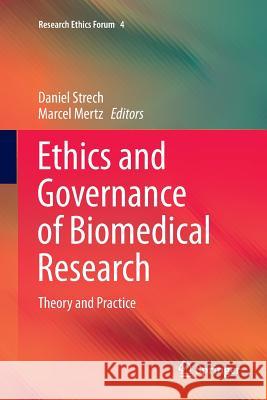Ethics and Governance of Biomedical Research: Theory and Practice » książka
topmenu
Ethics and Governance of Biomedical Research: Theory and Practice
ISBN-13: 9783319804125 / Angielski / Miękka / 2018 / 225 str.
Kategorie BISAC:
Wydawca:
Springer
Seria wydawnicza:
Język:
Angielski
ISBN-13:
9783319804125
Rok wydania:
2018
Wydanie:
Softcover Repri
Ilość stron:
225
Waga:
0.33 kg
Wymiary:
23.39 x 15.6 x 1.27
Oprawa:
Miękka
Wolumenów:
01
Dodatkowe informacje:
Wydanie ilustrowane











